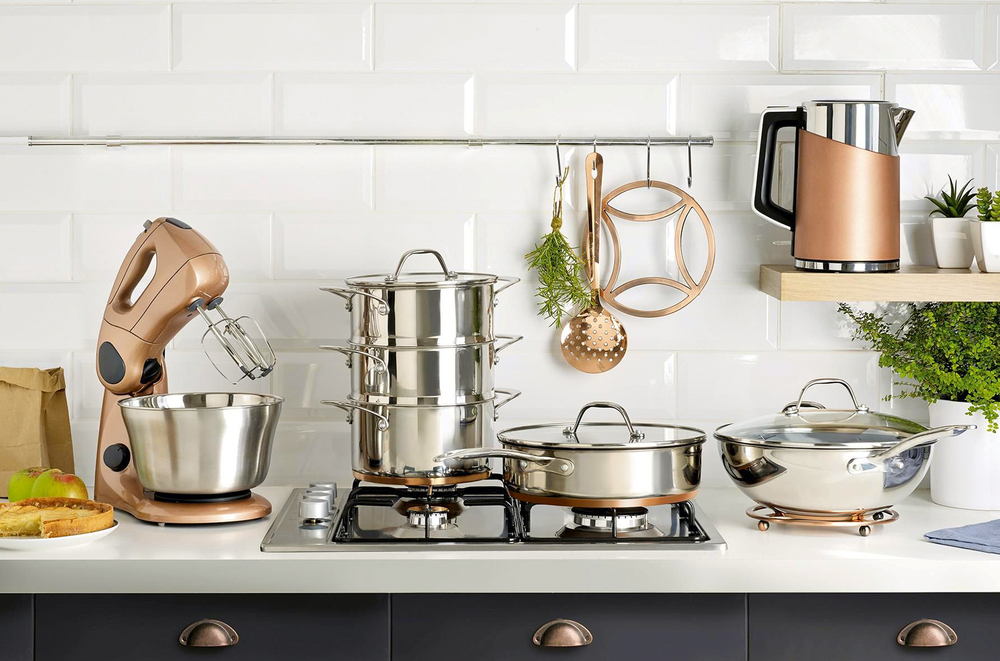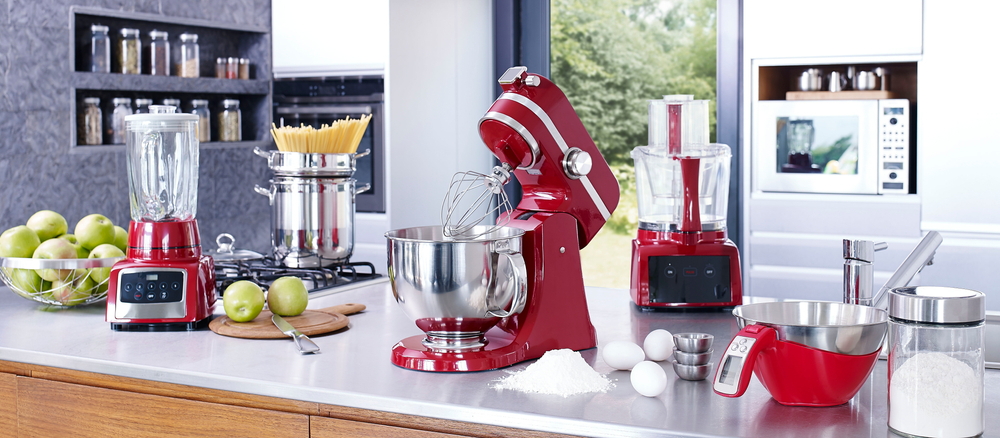There are several kitchen appliances that can be highly useful for maintaining a healthy lifestyle. These appliances can help you prepare nutritious meals, encourage healthy cooking methods, and make it easier to incorporate more fruits and vegetables into your diet. Here are some health-focused kitchen appliances:
Kitchen Appliances That Are Useful For Health
Blender: A blender is excellent for making smoothies, which can be a convenient way to pack in fruits, vegetables, and other nutritious ingredients like nuts, seeds, and yogurt. Smoothies are a great option for a quick and healthy breakfast or snack.
Food Processor: Food processors can chop, slice, and puree a variety of ingredients, making it easier to prepare homemade sauces, salsas, dips, and nut butters using fresh and wholesome ingredients.
Steamer: Steaming is a healthy cooking method that preserves nutrients in vegetables and other foods. A steamer allows you to cook vegetables without the need for excessive oils or fats.
Air Fryer: An air fryer can “fry” food using hot air, significantly reducing the amount of oil needed. It’s a healthier alternative to traditional deep frying, making crispy foods with fewer calories and less unhealthy fats.
Juicer: Juicers extract the juice from fruits and vegetables, providing a concentrated dose of vitamins and minerals. Freshly squeezed juices can be a good way to increase your intake of fruits and vegetables, but be mindful of the sugar content in fruit juices.
Slow Cooker: Slow cookers allow you to cook healthy and hearty meals with minimal effort. You can prepare soups, stews, and lean meat dishes with plenty of vegetables, and the slow cooking process helps to tenderize meat and develop flavors without excessive added fats.
Grill: An indoor or outdoor grill can be a healthy way to cook meats, seafood, and vegetables without added fats. Grilling helps to retain the natural flavors of the food while allowing excess fat to drip away.
Sous Vide Cooker: Sous vide cooking involves cooking food in vacuum-sealed bags in a water bath at a precise temperature. This method retains the nutrients and flavors of the ingredients, and it allows you to cook without the need for added fats.
Yogurt Maker: Making homemade yogurt is a healthy way to control the ingredients and reduce added sugars. Yogurt is a good source of probiotics, calcium, and protein.
Water Filter: While not a traditional kitchen appliance, a water filter is essential for promoting good health. Filtered water ensures that the water you drink and use for cooking is clean and free from contaminants.
Having these health-focused kitchen appliances can inspire you to cook more nutritious meals at home and support your journey toward a healthier lifestyle. Remember that while these appliances can be helpful, a balanced diet and regular exercise are fundamental for overall well-being.
How can I eat healthy in a small kitchen?
Eating healthy in a small kitchen is entirely possible with some creativity, organization, and efficient use of space. Here are some tips to help you maintain a healthy diet in a limited kitchen:
Meal Planning: Plan your meals ahead of time to ensure you’re buying only the ingredients you need. This will help you avoid clutter and make the most of your kitchen space.
Keep It Simple: Focus on simple, easy-to-prepare meals that require fewer ingredients and cooking utensils. One-pot dishes, salads, and stir-fries are great options.
Maximize Storage: Use stackable containers, clear bins, and drawer organizers to make the most of your cabinet and drawer space. Keep frequently used items within easy reach and store less frequently used items in higher or lower areas.
Utilize Wall Space: Install hooks, magnetic strips, or shelves on the walls to hang pots, pans, and kitchen tools, freeing up valuable counter and cabinet space.
Invest in Multi-Functional Appliances: Consider getting appliances that serve multiple purposes, such as a blender that can also function as a food processor. This reduces the number of individual gadgets you need to store.
Opt for Foldable or Collapsible Equipment: Look for foldable cutting boards, colanders, and measuring cups that can be easily stored away when not in use.
Choose Space-Saving Cookware: Opt for stackable or nesting cookware to minimize the space they take up in your cabinets.
Organize Your Fridge: Keep your refrigerator organized by designating specific shelves for different types of food. Place perishable items at eye level to avoid forgetting them and letting them go bad.
Prep in Batches: If you have limited counter space, try to prep ingredients in batches ahead of time. Wash, chop, and store vegetables and fruits, so they’re ready to use when you need them.
Practice Minimalism: Embrace a minimalist approach to kitchen tools and gadgets. Assess which items are essential and donate or store the ones you rarely use.
Go Vertical: Use the vertical space in your kitchen by hanging pots, pans, and kitchen utensils on a pegboard or wall-mounted racks.
Clean as You Go: In a small kitchen, it’s essential to keep things tidy to avoid clutter and maximize workspace. Clean up as you cook to maintain order and efficiency.
Choose Portable Appliances: If possible, opt for portable appliances that can be easily stored away when not in use.
Explore Outdoor Cooking: If you have access to outdoor space, consider using a grill or portable stove for cooking some meals, freeing up space in your small kitchen.
Remember, a small kitchen should not limit your ability to eat healthily. By being organized, creative, and intentional with your kitchen setup, you can enjoy nutritious meals and make the most of your culinary space.


1 thought on “Best Kitchen Appliances For Healthy Eating”